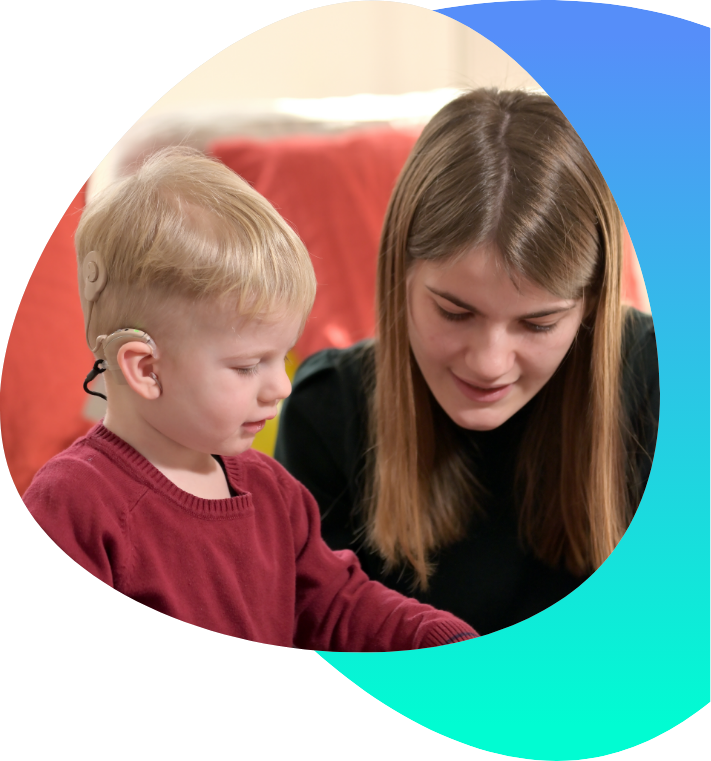Improving speech understanding for cochlear implant users
Why is this research needed?
Many recipients of the cochlear implant do not understand speech as well as others, and we want to help these people get the most benefit as possible from their implant.
There are three main factors we have shown to be associated with poor speech understanding with a cochlear implant:
Uneven or poor survival of hearing nerves in the inner ear.
Difficulty of hearing nerves to transmit information about a sound to the brain.
Changes in the way the brain works caused by periods of deafness.
We have recruited 30 study participants so far and published two papers that showed the brain regions that respond strongly when people are listening to a story, and how those differ for very new cochlear implant users.
Next steps for Bionics Institute researchers
The next steps are to use the information about each participant’s individual limiting factors to create individual methods to overcome them, by changing the way the implant works or by providing targeted hearing therapies.
Collaborators:
Dr Maureen Shader and Dr Robert Luke.
PhD student:
Jamal Esmaelpoor
More information for researchers
Despite the outstanding success of cochlear implants (CIs) in providing functional hearing to many deaf people, a significant proportion of users either cannot use the device alone to understand speech or get very little benefit.
A large international study investigating case-history factors relating to outcomes in adults (Blamey et al., 2013), revealed that the most influential patient history factors, including duration of hearing loss and CI experience, collectively accounted for only approximately 10% of the variance in speech understanding.
Such pre-implant information provides no clues for how to optimise the device itself, its functioning or the hearing rehabilitation therapies provided for individual patients.
Currently, a ‘one size fits all’ approach is used in clinical management of CI patients, in which default signal processing and minimal hearing therapy is provided for adults who have acquired deafness. However, this approach leaves many patients with suboptimal benefit from their implant.
Researchers at the Bionics Institute have already made significant progress in identifying factors associated with poor speech understanding in adults with a CI, and simple methods to diagnose them. Speech understanding is a complex process that requires both peripheral and central neural processing of the acoustic speech signal, and top-down multimodal and cognitive processing to extract meaning.
Deafness has effects on all these three aspects of speech understanding, and our proposed diagnostic measures, sensitive to these aspects, have already been shown to be individually correlated with speech understanding in experienced CI users.
Our current research is validating these diagnostic measures and their prognostic value so that signal processing strategies and/or hearing rehabilitation therapies can be better optimised and individualised to each future cochlear implant recipient.
Publications
Shader, M. J., Luke, R., Gouailhardou, N., & McKay, C. M. (2021). The use of broad vs restricted regions of interest in functional near-infrared spectroscopy for measuring cortical activation to auditory-only and visual-only speech. Hearing Research, 406, 108256. https://doi.org/10.1016/j.heares.2021.108256
Zhou, X., Seghouane, A. K., Shah, A., Innes-Brown, H., Cross, W., Litovsky, R., & McKay, C. M. (2018). Cortical speech processing in postlingually deaf adult cochlear implant users, as revealed by functional near-infrared spectroscopy. Trends in hearing, 22, 2331216518786850. https://doi.org/10.1177/2331216518786850
